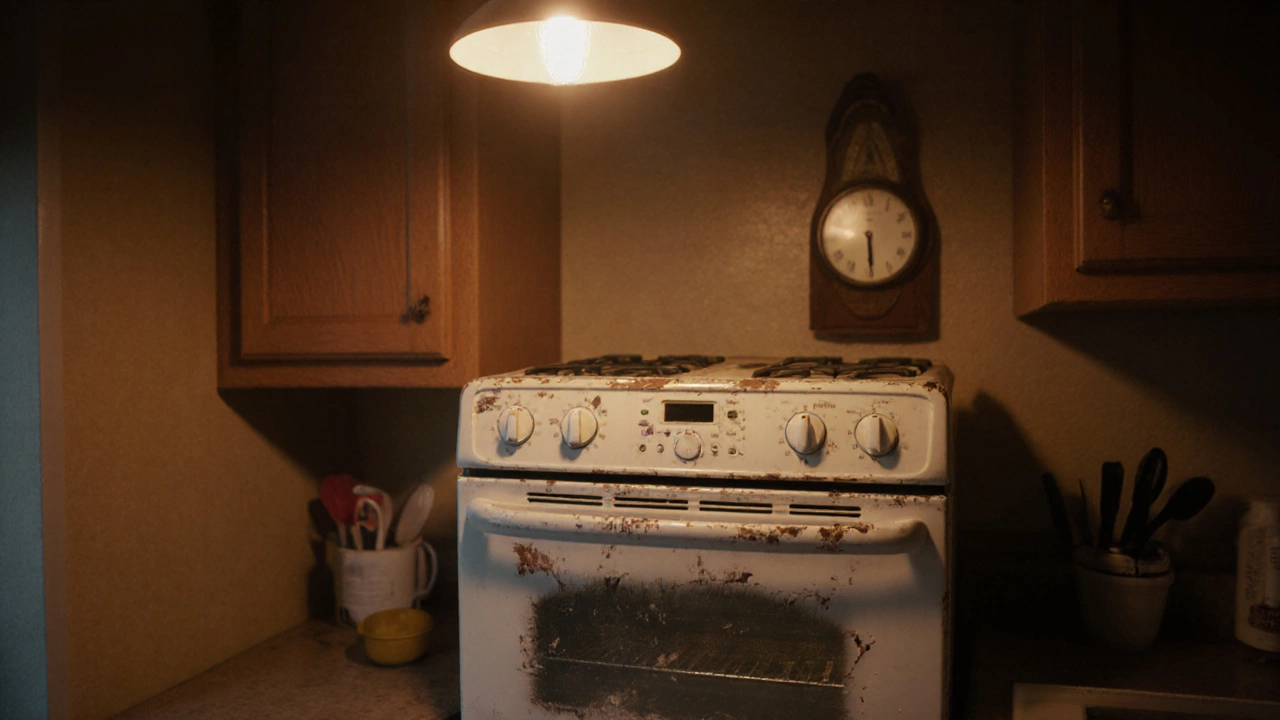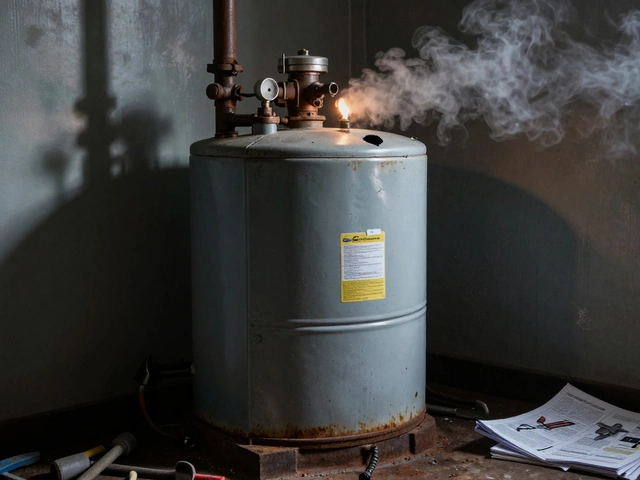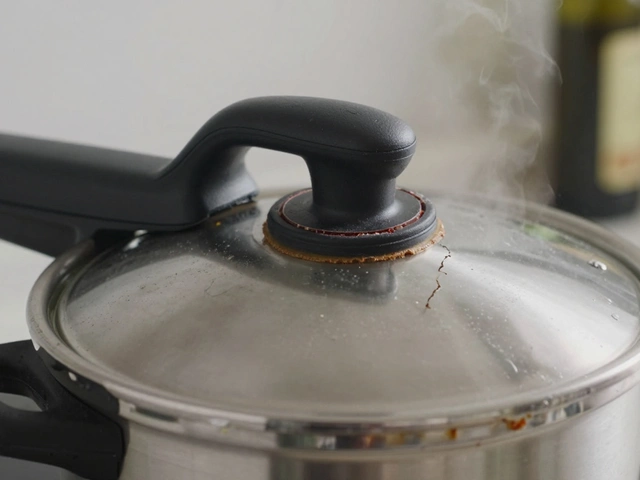So, you're wondering if you should toss out your gas appliances, huh? It's a pretty big decision, and there's more to it than just yanking them out and going all-electric. First up, let's chat about why people are even considering this swap. There's a lot of buzz around the environmental impact of natural gas. Sure, it's been a solid energy source for years, but with climate change breathing down our necks, reducing carbon footprints has never been hotter. Pun intended.
Beyond being green warriors, let's talk safety. Gas appliances come with their own set of risks—ever worry about a leak? You're not alone. Keeping these babies in good shape can help, but some folks think the safety features of modern electric alternatives are worth the switch. Do you?
Crunching numbers, gas can often be cheaper on the utility bill. But hang tight—it gets complicated with potential repair costs gnawing away at those savings. Not to mention, buying and installing brand-new electric devices isn't usually pocket-change territory. Should you shell out now for long-term efficiency?
Lastly, if you're sticking with gas for now, knowing how to maintain your appliances is key. A bit of love and attention can help keep operations safe and reduce unexpected expenses. Got your toolkit ready? Let's dive into all the juicy details and see what's best for you and your home.
- Weighing Environmental Impact
- Safety Concerns and Tips
- Cost and Efficiency
- Maintaining Your Existing Gas Appliances
Weighing Environmental Impact
Let's be real—our planet's in some hot water, and every choice we make counts. So, how do gas appliances fit into this picture? Well, using natural gas isn't just about heating water or cooking dinner; it's also about emissions. Natural gas is cleaner than coal but still releases carbon dioxide and methane—two big players in climate change.
Gas vs. Electric: The Emission Battle
Switching to electric could cut down on these emissions, especially if your electricity comes from renewable sources like wind or solar. That said, if your electricity is coming from coal-fired power plants, going electric might not be as green as you think. It's kind of like choosing between the lesser of two eco-evils.
Why does this matter? Some states and countries are pushing for a future with fewer fossil fuels. This means there could be incentives for going electric, like rebates or even tax credits. It also means gas might phase out eventually, which could affect the value of gas-powered homes in the long run.
The Lifecycle Debate
There's more to consider than just daily emissions. Ever thought about the whole lifecycle of your appliance? Making and shipping new electric appliances has its own carbon footprint. Sometimes, it's greener to keep what you've got until it kicks the bucket. Repairing gas appliances can also be an eco-friendly move, giving your current setup a longer life before it's landfill-bound.
The Future of Natural Gas
As renewable energy gets cheaper, experts think we'll see more pressure to ditch natural gas. But for now, why not take baby steps? Look for ways to make your existing setup more efficient, like sealing drafts and insulating hot water lines. It might not seem like much, but every bit helps.
Making sense of these choices isn't a walk in the park, but knowing the facts makes it easier. Whether you decide to keep your gas appliances or jump to electric, understanding the environmental picture is a solid start.
Safety Concerns and Tips
Alright, let's dive into the nitty-gritty of safety when it comes to gas appliances. We've all heard the horror stories—gas leaks, explosions, you name it. But how real are these risks, and what can you do to keep your home safe?
Watch out for Gas Leaks
Gas leaks are probably the biggest fear for anyone using these appliances. That distinctive rotten egg smell? It's added to natural gas just so you can detect leaks. If you ever catch a whiff, take it seriously. Leave the house immediately and call for help. Don't mess around with trying to fix it yourself or even flipping light switches.
Regular Maintenance is Key
Can you remember the last time you gave your gas stove or heater some TLC with a check-up? Regular maintenance is crucial for keeping everything running smoothly and safely. Hire a professional technician to inspect your appliances at least once a year. It’s worth the peace of mind.
Install a Carbon Monoxide Detector
This little device is a must-have if you're running any gas appliances. Carbon monoxide is a silent killer—colorless, odorless, and downright dangerous. A detector can alert you to dangerously high levels and give you a life-saving heads-up to get out.
Ventilation Matters
Proper ventilation isn't just something your mom nagged you about. It's task number one on the safety list. Make sure your kitchen and any area with gas appliances has enough vents or windows to let fresh air flow in. Poor ventilation can lead to dangerous gases building up inside.
Fire Safety Tips
If you're cooking with gas, always keep an eye on the flame. It’s easy to forget, but double-check before walking away. Also, store any flammable items—like towels—far away. These simple steps can help prevent kitchen fires.
Safety first, right? With these tips and routine checks, you can keep using gas appliances while still keeping your home secure. Let's tackle those worries head-on and keep things running smoothly.

Cost and Efficiency
If you're pondering the financial side of swapping out gas appliances for shiny new electric ones, you're not alone. Let's break it down: what makes more cents, and how can you keep your wallet happy?
Initial Investment
First off, buying electric appliances can be a bit pricey up front. Installation might need some rewiring too, and that’s not free. But here’s where it gets interesting: electric appliances usually come with rebates or incentives to ease that initial sting. It's like a friendly shove towards them from energy companies.
Running Costs
Now, about those utility bills. Historically, gas has been cheaper than electricity per unit of energy, giving gas appliances a boost in the running cost department. But with tech advances, electric devices are closing the gap with increased efficiency. So, depending on your local rates, electric might just steal the show in monthly savings over time.
Repairs and Maintenance
Gas appliances typically need a little more TLC with regular maintenance checks. Leaks or malfunctions can lead to costly repairs and sometimes even safety risks. Electric devices, on the other hand, have fewer maintenance woes. Think smooth sailing—but bear in mind, when they do break, you might need to call in experts (which could get pricey too).
| Cost Type | Gas | Electric |
|---|---|---|
| Initial Cost | Lower | Higher |
| Running Cost | Variable (cheaper per energy unit) | Generally higher but varies |
| Repair/Maintenance | Higher | Lower |
| Environmental Costs | Higher (emissions) | Lower (with renewables) |
So, weighing the upfront costs against the long-term savings is crucial. If you plan to stay put for a while, those electric beauties might pay off. But if relocation is on the cards soon, sticking with gas could keep the balance in your favor. Either way, paying attention to both running and repair costs can guide you towards what's more efficient for your own budget and lifestyle.
Maintaining Your Existing Gas Appliances
So, you've decided to stick with your trusty gas appliances. Awesome choice, but let's make sure they stay in top shape. A little regular TLC can go a long way in keeping things running smoothly and safely.
Regular Inspection
Start with a good look-see of your appliances. Check for signs of wear and tear. Is the flame burning blue? If not, that's a red flag. You might need a professional to adjust the air and gas mixture.
Clean Those Burners
Burners can get dirty over time, which messes with efficiency. Grab a brush and some soapy water. Make sure everything's cool, then gently brush off any grime or debris.
Look for Leaks
This one's big. Ever heard of the soap test? Mix a bit of dish soap with water, then brush it on the gas connections. If you see bubbles, you've found a leak. Better call in folks who know their stuff to fix that up.
Ventilation Matters
Don’t forget about ventilation, especially in the kitchen. Ensure vents are clear of blockages. Stuffy environments can lead to unhealthy air quality, and nobody wants that.
Annual Professional Servicing
Just like a car needs a mechanic, your gas appliances need a pro's touch annually. A trained technician can tweak things and make sure everything's safe as houses.
| Task | Frequency |
|---|---|
| Inspect for wear and tear | Every 3 months |
| Clean burners | Monthly |
| Check for leaks | Every 6 months |
| Ensure proper ventilation | Yearly |
| Professional servicing | Annually |
Staying on top of these simple tasks not only keeps your appliances happy, but it also ensures your home's safety. Plus, efficient appliances can save on that ever-important energy bill. Not too shabby, right?



